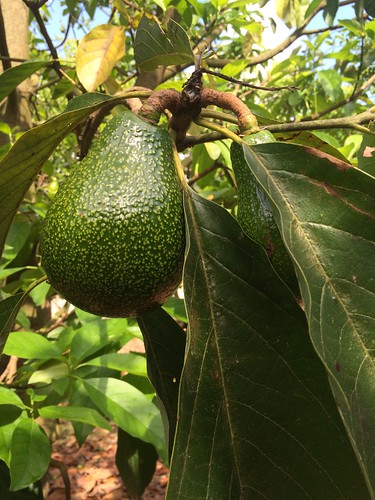
Although Florida’s green-skin avocado industry may be a niche compared to Hass avocado operations in California, green-skin avocados are beloved by their growers and a staple for the communities that grew up eating them.
With more than 60 varieties and peak maturity ranging from May to December, the Florida avocado industry uses harvest timing and technology to ensure only mature avocados reached consumers.
The industry works with the U.S. Department of Agriculture (USDA) to operate a federal marketing order, which helps the producers expand marketing opportunities and ensures quality fruit for consumers. Industry members make up the committee that locally administers the marketing order. Marketing order committees are able to establish industry standards, develop markets, gather data, and conduct research - all tailored to meet the individual needs of a particular commodity and size of its industry.
From maintaining a robust but flexible maturity schedule to customizing an advanced Avocado Variety Enforcement Program (AVEP) that uses DNA testing for inspections, the committee is using its marketing order to capitalize on cutting edge technology when it comes to production and quality.
The Committee maintains a database of size, shape, and other sensory indicators of each avocado variety to evaluate when they reach the optimum maturity to ripen. The maturity schedule is vital to ensuring integrity in marketplace transactions and is flexible enough to adapt to evolving production conditions.
In 2014, the committee recommended USDA change the marketing order’s maturity schedule for one avocado variety. After several years of testing, the committee had confirmed some sizes of the Choquette variety were maturing earlier than the schedule indicated they should. The committee’s action changed the shipping schedule to match current maturity dates. This change optimized shipments to the fresh market, which benefits growers, handlers, importers, and consumers.
In the early 2000s, the industry needed a thorough but efficient way to assess and verify that the avocados being shipped to market were labeled appropriately with their variety. Through its marketing order, the committee collaborated with researchers to identify DNA specifications for each variety and helped federal inspection services adopt more thorough variety identification parameters.
Inspectors evaluate avocado shipments by comparing the declared variety against an official photo-book of varieties, and send random samples to approved USDA laboratories for further verification through DNA testing. This program, known as the Avocado Variety Enforcement Program (AVEP), continues on an annual basis from mid-August to late-October, and is an ongoing benefit to the Florida avocado industry and consumers by preventing immature fruit from reaching the market.
Today, reports of immature avocados reaching the market have nearly ceased, and members of the industry have widely praised USDA for the development and continuation of the program. AVEP provides consumers with the assurance that they are purchasing mature quality avocados – ripe for the eating.
